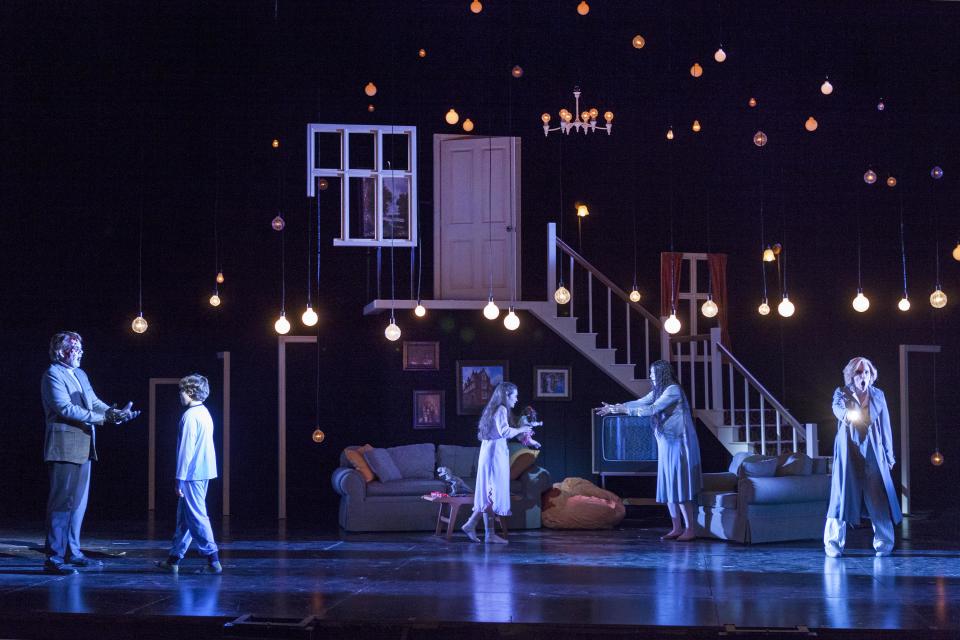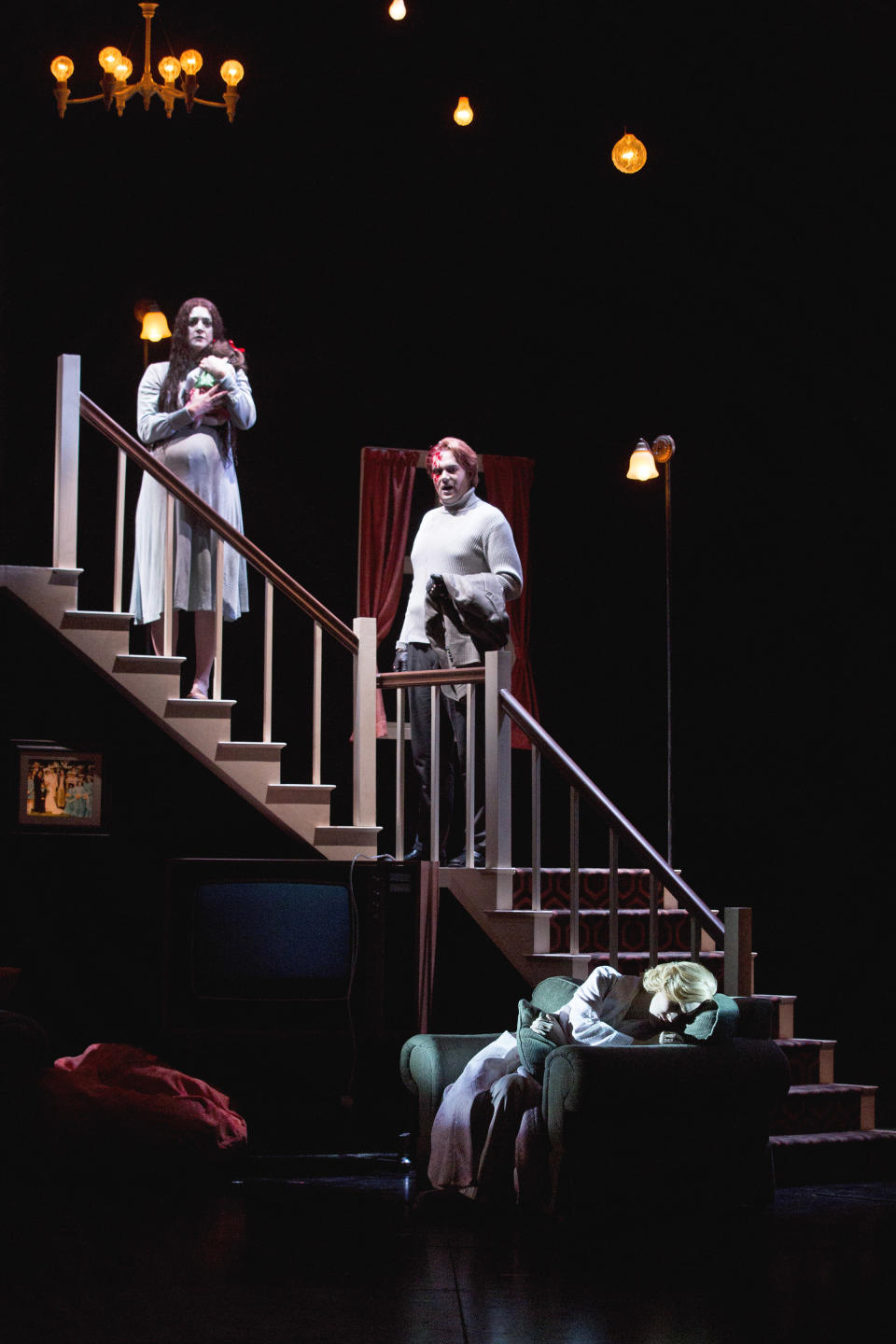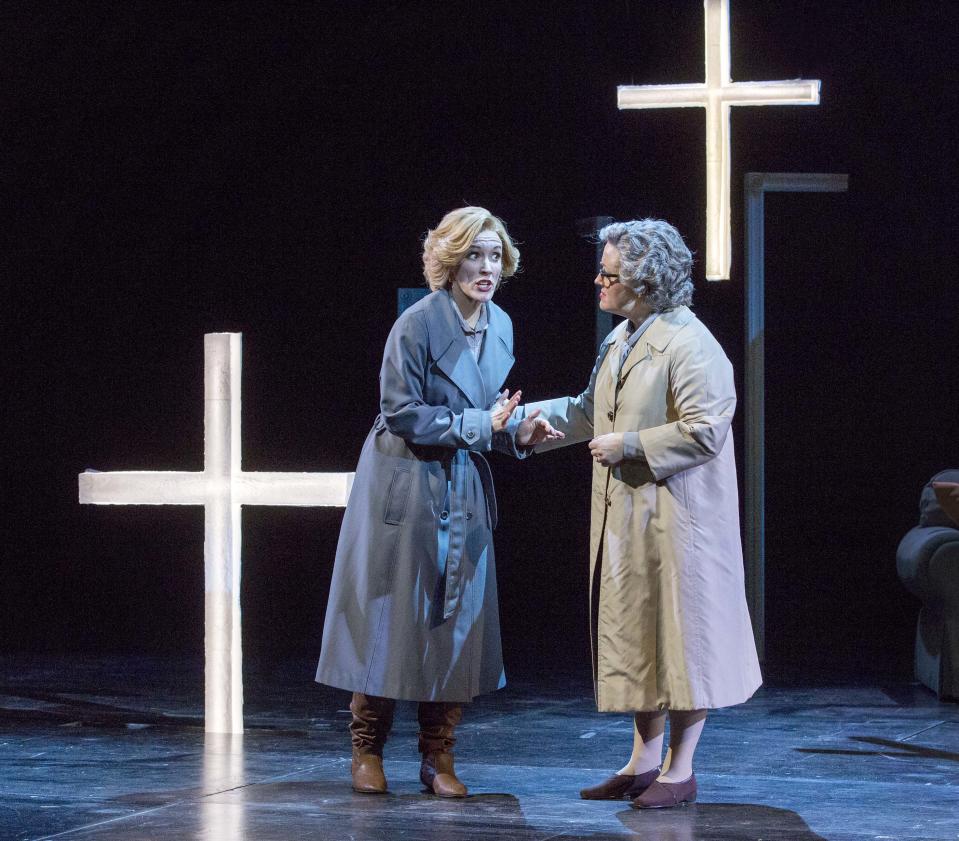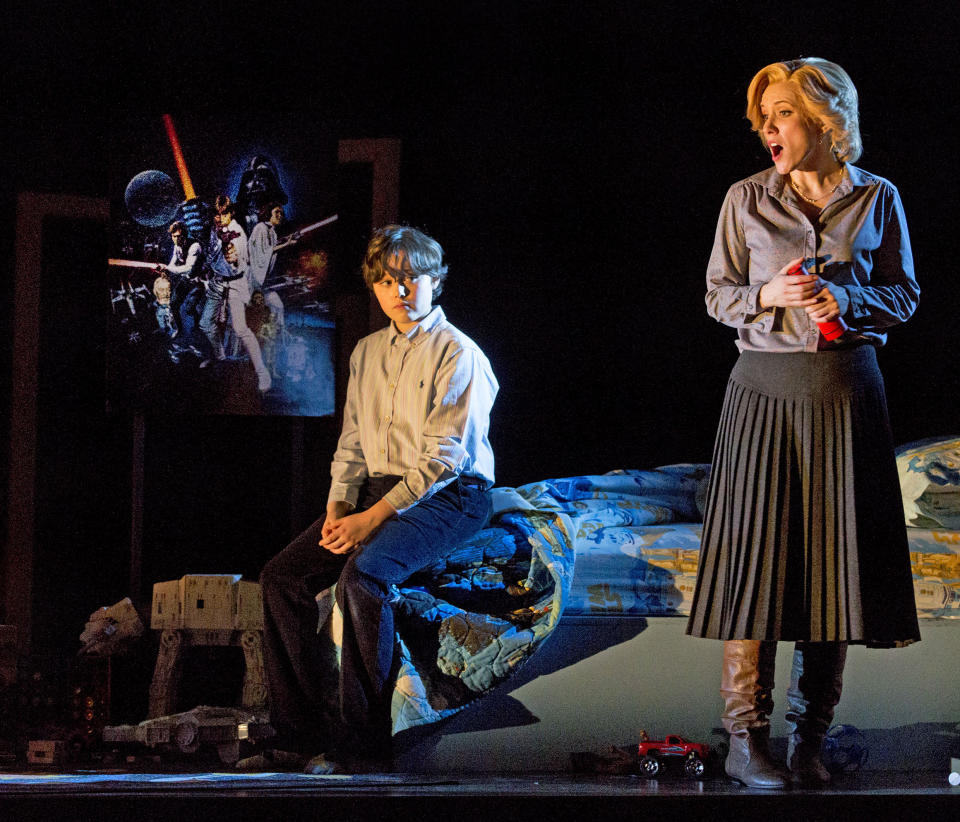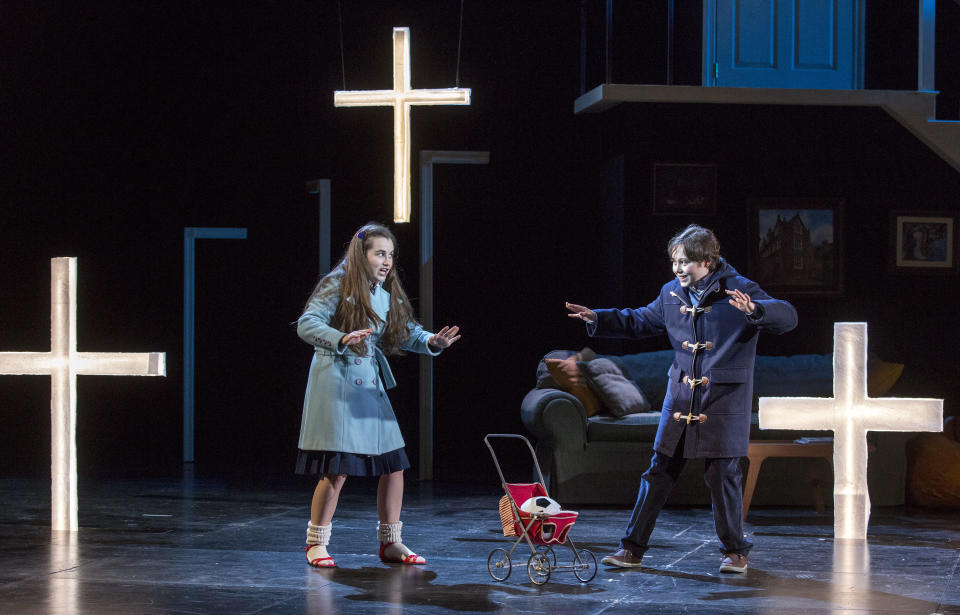Britten ghost story at City Opera
NEW YORK (AP) — When it comes to operatic ghost stories, none is more creepily effective than Benjamin Britten's "The Turn of the Screw."
The British composer's 1954 adaptation of the Henry James story, setting a libretto by Myfanwy Piper, perfectly captures the suffocating atmosphere as well as the ambiguity of the original. Britten's elegant score, written for chamber orchestra and six soloists, uses 12-tone serialism interspersed with traditional melodic forms that keeps the listener off-balance and instills a growing sense of unease.
On Sunday afternoon, the New York City Opera premiered a new production at the Brooklyn Academy of Music that captured some of these qualities but ultimately failed to do justice to the piece.
Much of the problem lies in the decision by director Sam Buntrock — best known for the revival of Sondheim's "Sunday in the Park With George" — to tell the story in the style of 1980s horror movies. Though intelligent updating can shed new light on a work, this effort seems at best beside the point and, at crucial times, downright harmful.
James set his story in a 19th-century English country estate, where a young governess is sent to care for a brother and sister, Miles and Flora, whose only living relative can't be bothered with them. She soon discovers to her horror that their former governess (Miss Jessel) and her lover (Peter Quint) — both dead — have returned as ghosts to try to claim the children's souls. Or so she thinks. It's also just possible that the phantoms she thinks she sees are figments of her overactive imagination.
James — and Britten — do a masterful job of keeping us guessing, and it's questionable how drawing inspiration from "The Shining," ''The Exorcist" and the like can improve on the original.
Buntrock, using an ingenious cutaway set by David Farley and clever lighting by David Weiner, moves the action to a modern manor house, complete with a television set, Cassio keyboard and a "Star Wars" poster. Whenever Quint appears, the TV screen — a la "Poltergeist" — develops static. This gimmick gets old, especially in the final scene when Quint and the Governess are waging a tug of war for the soul of Miles. To have the TV start acting up in the midst of their battle is a silly distraction.
Wrongheaded, as well, is Buntrock's decision to follow Miles' death with the appearance of his ghost. He seems to be saying that although the grown-up spirits have been vanquished, the child will now haunt the place — an extraneous notion not at all in the spirit of the original.
There's much better news on the musical end of things. All six singers do terrific work, starting with soprano Sara Jakubiak, who brings pure, powerful tone and fierce commitment to the Governess' difficult music. Tenor Dominic Armstrong, doubling as the Narrator and Quint, uses his smooth sound to convey sinister charm and menace. Boy soprano Benjamin P. Wenzelberg makes a sweet though small-voiced Miles, and adult soprano Lauren Worsham sings strongly as Flora and acts the part of a little girl as believably as possible. Excellent as well are contralto Sharmay Musacchio as the housekeeper, Mrs. Grose, and soprano Jennifer Goode Cooper as the visibly pregnant ghost of Miss Jessel. Jayce Ogren conducts the 14-piece ensemble with fluid pacing and fine attention to detail.
There are three more performances through March 2. City Opera, which opened its season at BAM with Thomas Ades' "Powder Her Face," then moves to the City Center in April for two more productions: Rossini's "Moses in Egypt" and Offenbach's "La Perichole."

